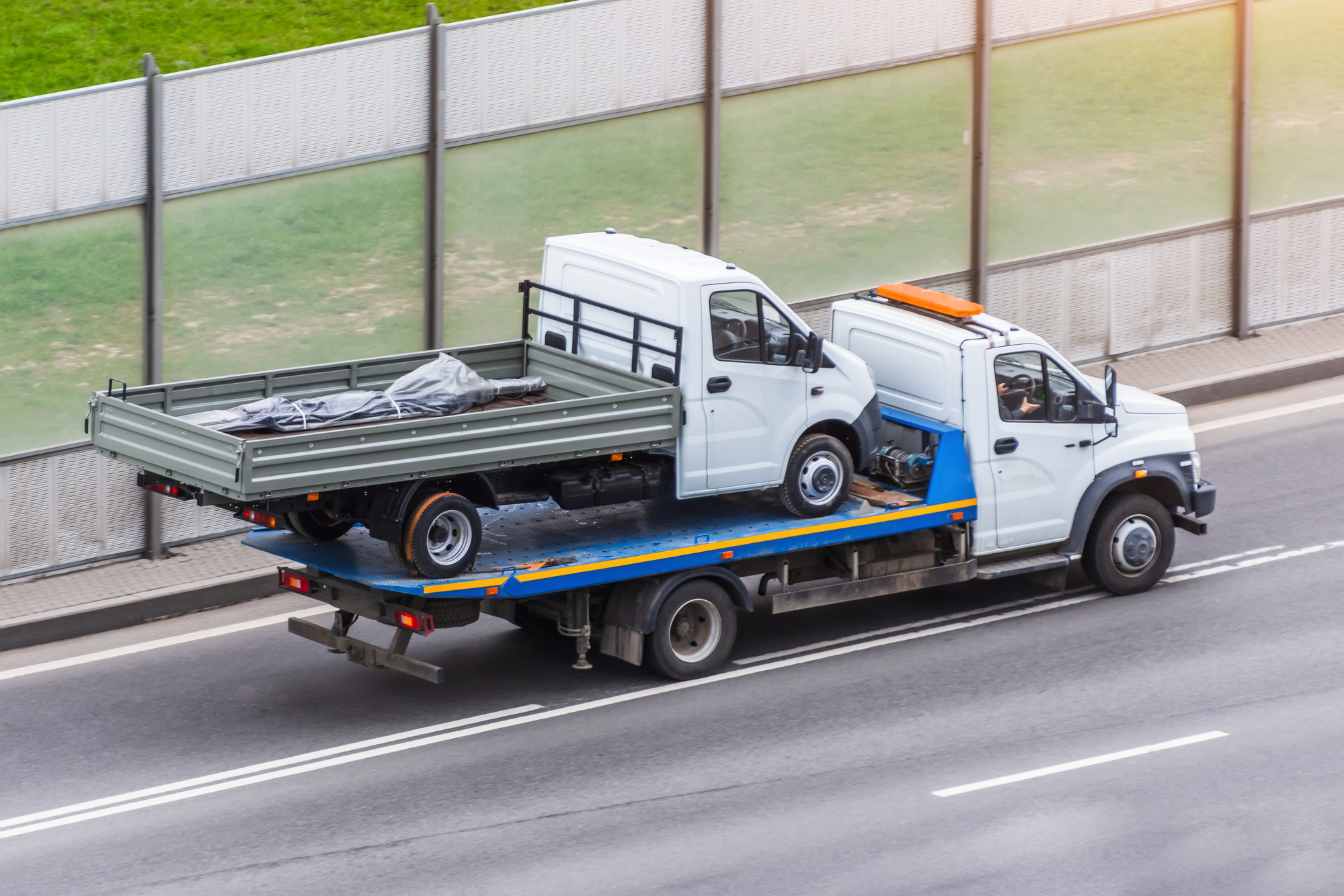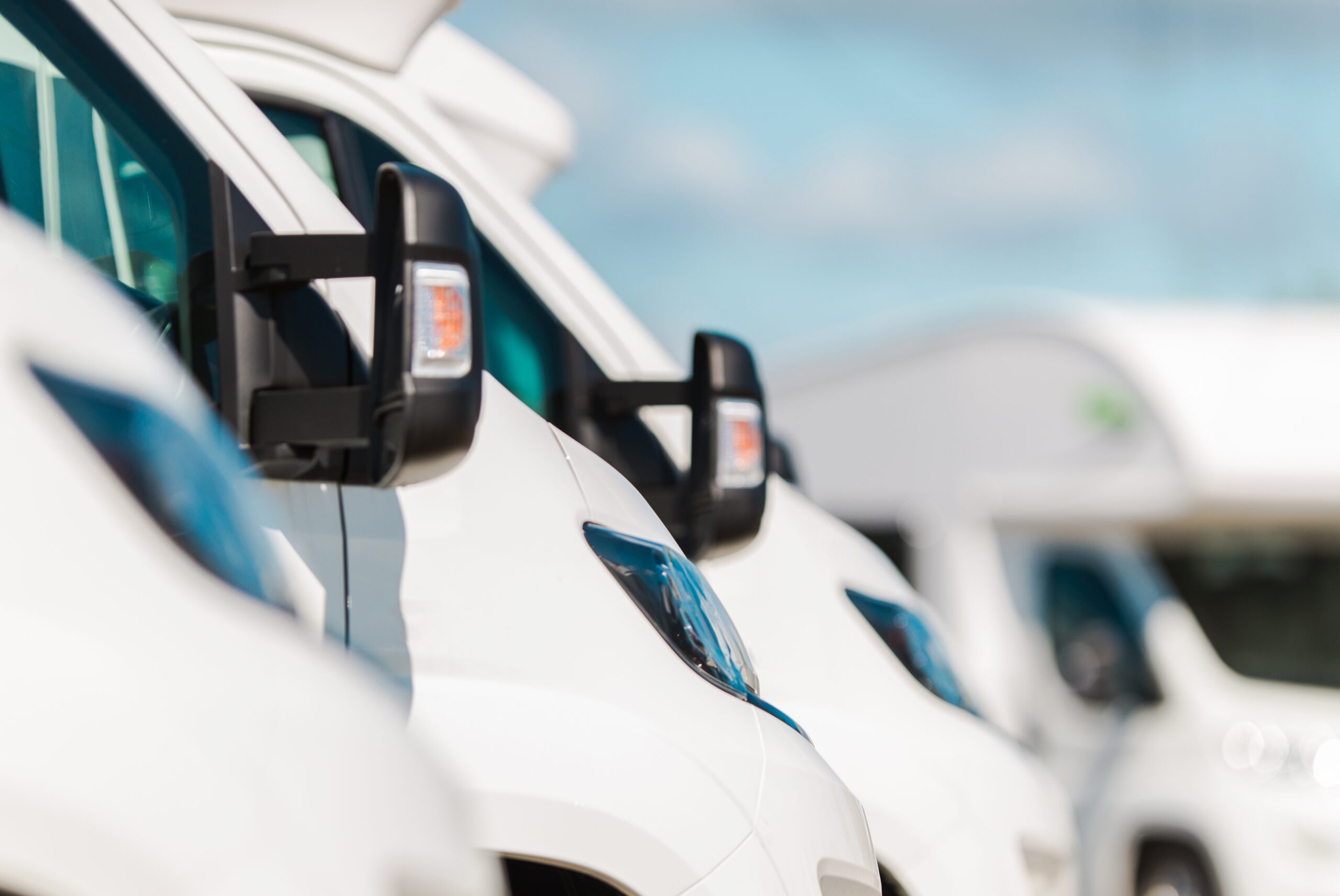Whether your business does catering or construction, you rely on a commercial auto fleet to get the job done. Fleets can be made up of many different types of vehicles, but they all require the same thing: a commercial auto fleet policy.
Commercial auto insurance is more than just a business version of your personal auto insurance policy. In this guide, we’ll explain the ins and outs of how business owners can insure a commercial auto fleet to get the most protection for their livelihoods.
What Is Commercial Fleet Insurance?
If you own a business, it’s crucial that you get a commercial auto policy (especially if employees use their personal vehicles to complete their job duties). But if you own multiple vehicles for business (that are in the company’s name), you’ll want to look at a commercial fleet policy.
Designed for auto fleets of five (5) vehicles or more, commercial fleet insurance is an easy way to insure your business vehicles “in bulk” without getting a separate policy for each one.
Insuring your entire fleet makes it easier to pay premiums, file claims, and renew your policy, as there’s only one policy number to remember. Commercial fleet insurance also makes it easy to add or remove vehicles (and drivers) from your policy, so managing your commercial auto fleet is a breeze.
How To Insure a Commercial Auto Fleet
It takes more than a single form of coverage to protect your fleet from all the risks it may encounter on the road. However, the policies that are best for you, will depend on the type of vehicle, your line of work, and many other factors. Discuss your options with an independent insurance agent first.
Here are some of the policies that can be added to your commercial fleet insurance.

Collision Coverage
Crashes are one of the biggest hazards facing your company’s vehicles and there is no way to completely eliminate this risk. Collision coverage helps you repair damage to your vehicle caused by crashing into another vehicle or an object such as a tree or mailbox.
We highly recommend purchasing enhanced coverage, as commercial vehicles are often more expensive to repair than your personal vehicle, especially if they have been customized.
Comprehensive Coverage
Comprehensive coverage covers a wide variety of other types of damage that aren’t caused by a collision (such as fire, flood damage, theft, vandalism, etc.).
However, despite its name, Comprehensive coverage does not protect you against every other risk your vehicles may face.
Liability Insurance
You likely have General Liability coverage on your commercial business policy, but it’s a necessary addition to your fleet insurance as well.
Property Damage Liability (PDL) covers any damage your (or your employees) may cause to a third-party’s personal property and is one of the two types of insurance required by State law.
Bodily Injury Liability (BIL) covers physical injury that you (or your employees) may cause to a third party.
Liability insurance is a vital addition to your business auto policy, as we live in a very litigious society. Without the proper business insurance, you would be forced to pay for the damages (not to mention the legal defense fund) out of your own pocket.

Personal Injury Protection (PIP)
Personal Injury Protection, or PIP, is another coverage that is required by law. However, as a business owner, we highly recommend getting coverage beyond the $10,000 minimum. Simply traveling to the hospital by ambulance and getting a couple of X-rays is often enough to exceed this amount.
Commercial fleet vehicles tend to be larger and heavier than traditional passenger vehicles, which means they are likely to cause more damage. While workers compensation insurance may cover their medical care in some cases, it’s far better to have extra coverage, just in case.
Uninsured Motorist Coverage
According to the Insurance Research Council, approximately 1 in 5 Florida drivers (20.4%) are uninsured. If your company vehicle is involved in an accident with one of these uninsured motorists and they cause physical injury or damage.

Additional Fleet Insurance Policies
To create a stronger network of coverage, here are a few additional policies that would benefit all types of businesses:
- Towing reimbursement – Reimburses you for the costs of towing an undriveable vehicle
- Rental reimbursement – Reimburses you for the cost of a rental car if yours is out of commission
- New vehicle replacement – Reimburses you for a new model of the same vehicle in the event yours is totaled
- Gap insurance – Reimburses you for the difference between a total loss and what you owe on the vehicle
- Roadside assistance – Provides limited assistance if your vehicle is stranded on the side of the road (i.e. jump-starts, spare tire installations, fuel deliveries, etc.).
Protect Your Fleet With DSI
If you’re looking for auto insurance in Florida, look no further than Darr Schackow Insurance.
Our friendly agents are happy to review your current policies and offer suggestions on the coverages you may need to provide adequate protection. We can also offer quotes from alternative insurance companies to find the best coverage at the best price.

